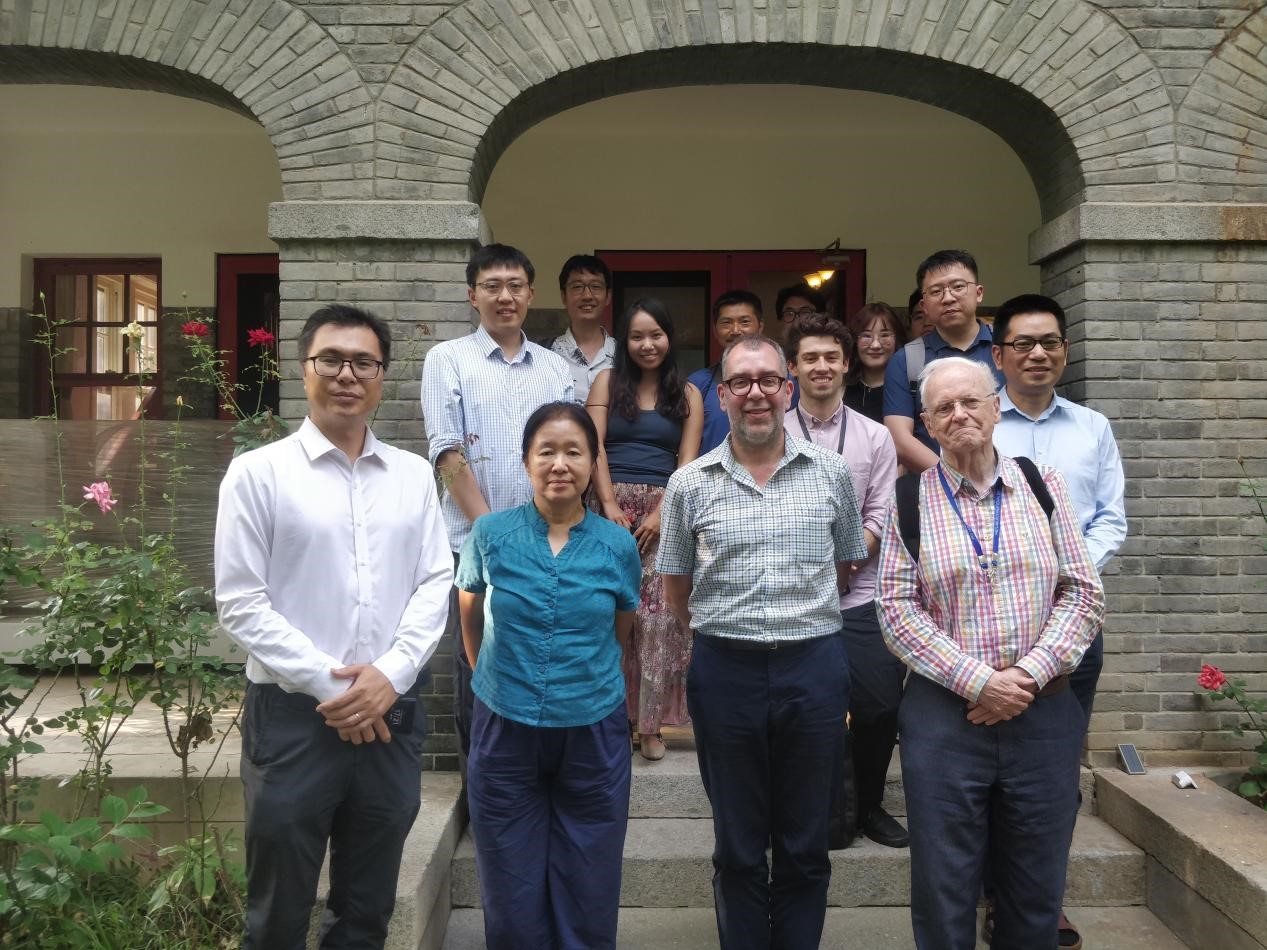
The 56th session of the “Adventus Amicorum” seminar series, organized by the Institute of Area Studies, Peking University (PKUIAS), was held on July 23, 2025. The theme of the seminar was “Europe in Great Power Politics.” The lecture was delivered by Sven Biscop, professor at the Egmont–Royal Institute for International Relations and at the Institute for International and European Studies, Ghent University. The lecture was moderated by Prof. Zhang Yongle, tenured associate professor at PKU Law School and deputy director of PKUIAS. The panel discussants included Prof. Luo Tianhong from the School of International Studies at Renmin University of China; Prof. Jin Ling, director of the Department for Global Governance at the China Institute of International Studies; Prof. Duan Demin, director of the Centre for European Studies at Peking University; Prof. Anthony Carty from the Beijing Institute of Technology Law School; Lin Zhaoran, postdoctoral fellow at PKU Law School; and Li Pai, postdoctoral fellow at PKUIAS.
In his lecture, Prof. Biscop delved into the European Union’s positioning within the global political landscape, particularly its complex situation amid great power politics and the dynamics of the China–US–EU trilateral relationship. He provided a focused analysis of the significant impact caused by the shift in policies in the “rules-based international order” during the US Trump administration, pointing out that these changes have provoked deep concerns within the EU regarding trade, economics, and security. Prof. Biscop emphasized that the core challenge facing the EU lay in the need for careful balancing: it must strive to maintain its traditional alliance ties with the US while also avoiding excessive compromise, insisting on strategic autonomy on key issues to cope with future uncertainties in US policy.
Biscop’s lecture and the subsequent discussion broadly covered the ongoing Russia–Ukraine conflict and its multidimensional impacts. Biscop first explained the application of international law within the context of the geopolitical crisis, the divergences in Russia policy among Western nations, and the geostrategic choices facing various countries. He paid particular attention to the refugee crisis against the backdrop of the geopolitical crisis, highlighting issues of public misunderstanding, low acceptance rates, and the severe impact of prolonged conflict on refugees’ lives, and criticized some politicians for exploiting ethnic issues for political gain. He stressed that immigration policies must adhere to ethical bottom lines and seek a difficult balance between accepting refugees and maintaining social stability. The subsequent dialogue among the participating scholars assessed the resilience of the European economy under crisis and its need for transformation, explored Europe’s role in crisis management and the challenges it faces in managing its international image, and affirmed the central importance of transparency and shared values in strategic communication.

In the concluding part of the lecture, Prof. Biscop profoundly revealed Europe’s unique predicament in the game of great power politics: it must both respond to pressures arising from the policy fluctuations of its traditional ally, the US, and explore constructive paths for cooperation with non-Western countries amid concurrent competition and collaboration. Simultaneously, the persistent geopolitical crisis continues to test Europe’s security architecture, economic resilience, humanitarian values, and internal unity. Although the road ahead is fraught with challenges, Europe’s effort to anchor itself in a turbulent world — by emphasizing strategic autonomy, adhering to the principles of multilateralism, and deepening dialogue with key partners — should remain a core concern for insightful figures in European politics and academia moving forward.
The participating scholars engaged in an in-depth discussion on the current state and future of China–EU relations. While acknowledging existing challenges, there was a general consensus that both sides share significant common interests in upholding a multilateral international order and promoting global governance. They affirmed the strategic importance of deepening China–EU relations and emphasized the urgent need to enhance mutual understanding and strengthen practical cooperation through sustained dialogue. The scholars’ discussion particularly highlighted the indispensability of multilateral frameworks for global governance. They pointed out that in this context, especially when analyzing and researching issues related to China, it is crucial for Europe to maintain and enhance its capacity for independent judgment and action.


